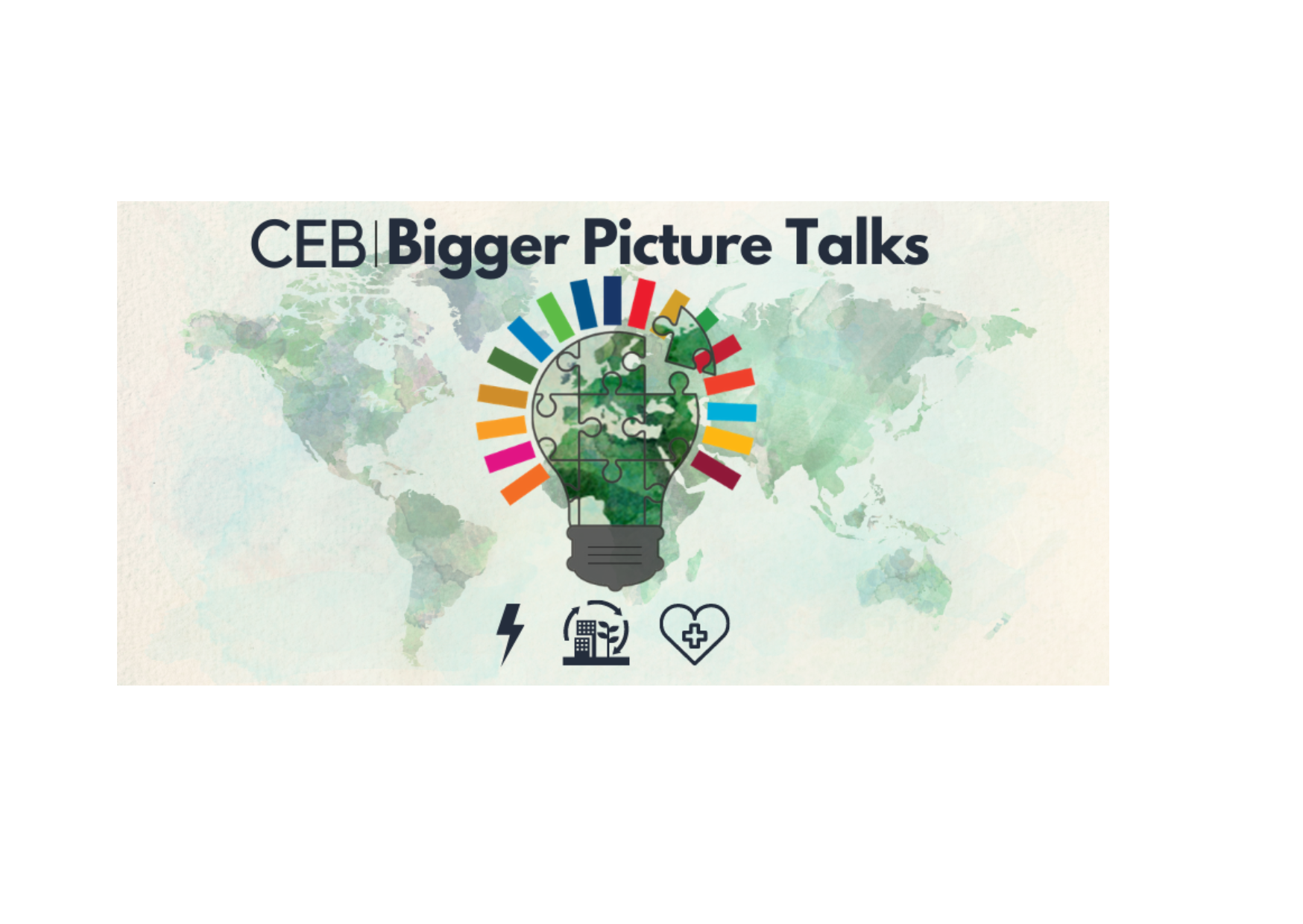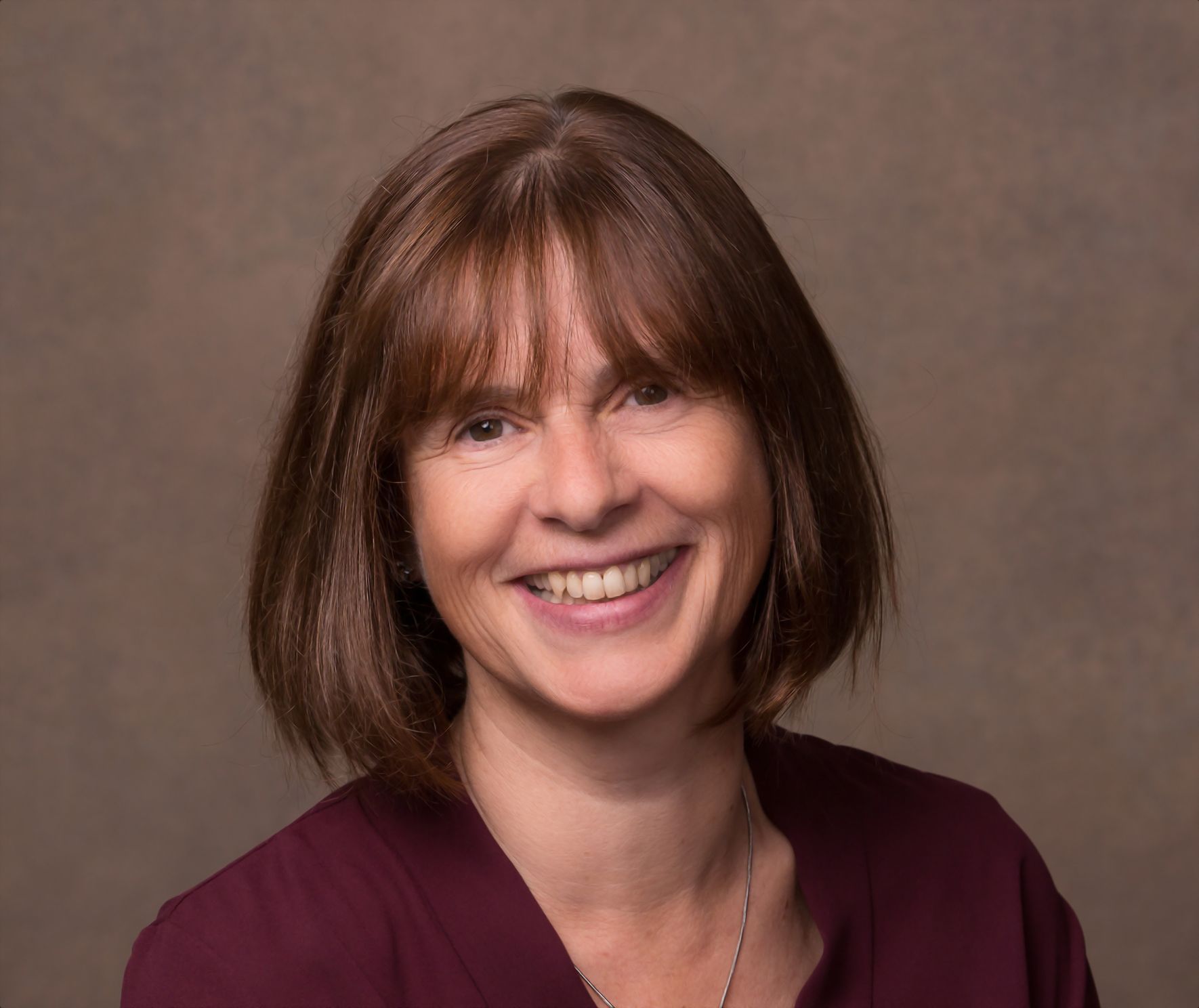Bigger Picture Talks

See the bigger picture, join the discussion
Our departmental seminar series, Bigger Picture Talks, runs throughout the academic year, inviting thought-leaders from across the world driving significant advances in our impact areas of energy, health and sustainability to share and discuss their work with us. This is a fantastic opportunity for us to hear from other leading researchers, develop new connections and collaborations, and discuss some of the wider questions in our field. We hope they will inspire new ideas for us all to take into our own research.
The seminars are predominantly for an internal audience, but are often open to all members of the University of Cambridge, and sometimes wider. We endeavour to open the events to as wide an audience as possible, and will share recordings where we are able, but due to the nature of research talks, they often feature pre-publication results, so this is not always possible. You can find our upcoming seminars on our talks.cam listings, and see our previous speakers below.
*Bigger Picture Talks is a series of seminars organised by Dr Ewa Marek, on behalf of the CEB Research Committee, and held at the department during term time. Dr Marek is always keen to hear from interested parties with feedback and suggestions for future talks.
Upcoming Talks
The Big Picture Talks series has now ended for academic year 2024/25 and will return in 2025/26.
Ideas for speakers? Get in touch with the organisers to submit feedback on how to continue to develop this educational lecture series, with ideas for lecturers or topics of discussion.
Past speakers
2024/25 Series
6 May 2025
Professor Fiona Macleod
Professor of Process Safety - University of Sheffield
Bhopal 40 years on - What have we learned?
Abstract
On the night of 2 and 3 December 1984 a toxic gas release from the Union Carbide pesticide factory in Bhopal, India caused thousands of deaths and hundreds of thousands of life-changing injuries. Forty years later, the rusting factory equipment still towers above buried hazardous waste in the abandoned factory. I visited the site of the former Union Carbide site in Bhopal India to try to understand what went so horribly wrong.
1. What caused the worst accident in the history of the chemical industry?
2. Why was the accident never properly investigated?
3. What can we learn about process safety from revisiting the accident?
4. Why has no clean-up been undertaken in 40 years?
Speaker bio
Fiona Macleod is a chartered chemical engineer and Cambridge alum, with over 40 years of international experience in the chemical and power industries.
She is Professor of Process Safety at the University of Sheffield and writes crime fiction under the pen name of Fiona Erskine, with six published thrillers and more on the way.
Learn more about Fiona's career and time at Cambridge on Selwyn College's website: Fiona Macleod profile
26 February 2025
Professor Zoe Kourtzi
Professor of Computational Cognitive Neuroscience
University of Cambridge
AI for better brain and mental health
Zoe Kourtzi is a Professor of Computational Cognitive Neuroscience at the University of Cambridge. Zoe’s research aims to develop predictive models of neurodegenerative disease and mental health with translational impact in early diagnosis and personalised interventions. Zoe received her PhD from Rutgers University and was a postdoctoral fellow at MIT and Harvard. She was a Senior Research Scientist at the Max Planck Institute for Biological Cybernetics and then a Chair in Brain Imaging at the University of Birmingham, before moving to the University of Cambridge in 2013. She is a Royal Society Industry Fellow, Cambridge University Lead at the Alan Turing Institute and Co-director of Cambridge’s Centre for Data Driven Discovery.’
6 February 2025
Dr Alessandra Quadrelli
Director of Research, Chemistry - Centre national de la recherche scientifique, France
Situated Green Chemistries
Alessandra Quadrelli is director of research in chemistry from the French National Centre for Scientific Research, CNRS, at the IRCELYON laboratories. Her research focuses on materials for CO2 reduction. Concurrently, Alessandra is proposing the the “Situated Green Chemistries” framework to explore transdisciplinary definition of sustainable chemistry. Inspired by Donna Haraway’s “situated knowledges” concept in science and technology studies and feminist epistemologies, the framework proposes several other possible chemistries, built from perspectives under-represented in the current academic arena, to help address present challenges and shape more diverse scenarios of sustainable futures.
LinkedIn : Elsje Alessandra Quadrelli
13 November 2024
Dr Adelina Voutchkova-Kostal
Director of Sustainable Development at the American Chemical Society
Alcohols to Sustainable Aviation Fuel Mixture via Multifunctional Catalysis
A promising approach for the economic production of drop-in fuel substitutes, such as sustainable aviation fuels (SAF), is the use of hydrogen-free processes driven by multifunctional catalysts. Our research focuses on alcohol upgrading and deoxygenation cascades that yield only water, hydrogen, and carbon monoxide. This hydrogen-free process is catalyzed by multifunctional Pd catalysts, supported on materials with varied acid-base properties: primarily basic MgO, acidic γ-Al₂O₃, and Mg-Al hydrotalcite (HT), which offers a balance of Lewis acidic and basic sites. This process is currently being developed for aviation applications.
In the second part of the talk, Dr. Voutchkova will explore how the ACS Green Chemistry Institute is accelerating innovation in green and sustainable chemistry through: (i) fostering knowledge exchange and cross-sector collaboration; (ii) partnering with industry to drive the adoption of green chemistry and develop essential research tools and metrics; and (iii) training the chemistry workforce to create more sustainable processes, chemicals, and materials.
17 October 2024
Dr Agnieszka (Aga) Iwasiewicz-Wabnig FRSA
Director of the Maxwell Centre and Industrial Strategy Lead for the Cambridge Zero initiative
The role of science and technology in delivering a healthy, resilient society by 2051
To create an ideal future society, meaningful, interdisciplinary relationships and knowledge exchange between academic research, industry, and external stakeholders are essential. This talk illustrated how informal conversations over coffee can lead to significant, scalable impacts, emphasising that each of us has a vital role to play, including the courage to speak out when needed.
The new Maxwell Centre strategy, focusing on Zero Waste and Health Tech themes, will be positioned to facilitate these transformative connections and Dr Iwasiewicz-Wabnig discussed how.
Past Picture Talks - 2023/24 series
Professor Sarah Tabrizi, UCL
New genetic therapies for Huntington's Disease and other neurodegenerative diseases
Abstract: Professor Tabrizi's talk covered new genetic therapies for Huntington's disease and other neurodegenerative diseases.
Professor Shelly Singh-Gryzbon, CEB
Pre-procedural planning of transcatheter heart valve interventions with clinical imaging and in silico modelling
Abstract: Professor Singh-Gryzbon's lecture discussed recent advances in modeling for transcatheter heart valve interventions, emphasising how clinical imaging combined with simulations can improve decision-making in patient selection and planning for aortic, mitral, and tricuspid valve replacements.
Professor Michael Grätzel, EPFL
From molecular photovoltaics to Perovskite solar cells
Abstract: Professor Grätzel discussed recent advancements in photovoltaic technology, focusing on dye-sensitised and perovskite solar cells, highlighting their efficiency, scalability, and potential for commercial application, with current research addressing long-term stability and scale-up.
Professor Marcella McManus, University of Bath
One and one isn’t always two – the arithmetic of carbon
Abstract: Professor McManus explored the use of life cycle-based carbon accounting, emphasising the need for improved measurement of novel, dynamic, and emerging systems that use and reuse materials, in the context of achieving Net Zero and fostering a more circular economy.
Professor Tim Korter, Syracuse University
Can you hear the shape of a crystal? Terahertz vibrational spectroscopy of challenging pharmaceutical crystals
Abstract: Professor Korter's talk provided an overview of using terahertz vibrational spectroscopy combined with quantum mechanical crystal structure prediction to determine the three-dimensional structures of pharmaceutical solids, aiming to improve solubility and oral availability of drugs with unknown solid-state structures.
Pre-2023 Past Picture Talks
|
Speaker and |
Abstract |
|
|
|
Professor Gregory Patience, Polytechnique Montréal |
Gregory, after a 14-year industrial career at DuPont, became a professor at Polytechnique Montréal in 2004, where he was awarded the Canada Research Chair, secured $20 million in funding, trained 200 personnel, published over 100 papers, and received multiple prestigious awards for his work in catalysis, chemical conversion, and consulting for major corporations. |
|
|
Professor Maya Kaelberer, Duke University |
This lecture established that animals preferred sucrose over sucralose, independent of the sweet taste in the mouth, and revealed that neuropod cells in the small intestine differentially sensed these sweeteners, driving the preference for sucrose. |
|
|
Saied Dardour |
This interactive lecture explored the challenges of decarbonising electricity grids for the more than 70 countries that have set a ‘net zero’ target, covering over 75% of global emissions, while introducing approaches and frameworks such as energy systems modelling, life-cycle assessment (LCA), and multi-criteria decision analysis (MCDA) that inform decision-making in the power sector. |
|
|
Professor Paul Fennell |
This lecture discussed the challenges of decarbonising concrete and iron and steel production, which together account for around 14% of global CO2 emissions, and highlighted ongoing efforts to develop alternative processes that produce similar materials with significantly lower emissions. |
|
|
Professor Alvaro Mata |
This lecture presented our laboratory's efforts to integrate biological organization principles and supramolecular events, such as self-assembly and diffusion-reaction processes, with engineering methods to design bioinspired materials and devices, while also exploring recent advancements towards "bio-cooperation" through the development of dynamic hydrogels, self-assembling fluidic devices, and regenerative implants. |
|
|
Professor Chihaya Adachi |
In this presentation, Professor Adachi discussed the importance of the charge transfer phenomenon in designing high-performance organic light-emitting molecules in OLEDs and outlook the prospect of advanced CT technologies. |
|
|
Professor Constantin Coussios, Oxford Institute of Biomedical Engineering |
This lecture discussed the formidable barriers posed by tumour physiology to the delivery of anticancer therapeutics and examined how thermal and mechanical effects from extracorporeal stimuli, such as ultrasound, can help overcome challenges like elevated intratumoural pressure and enhance both therapeutic efficacy and immune responses in solid tumours. |
|
|
Professor Roland Clift, Centre for Environment and Sustainability, University of Surrey |
This lecture re-evaluated the role of engineering, particularly chemical engineering, in sustainable development as defined by the UN Sustainable Development Goals, highlighting its contribution not only to new processes and products but also to the emerging field of Industrial Ecology by applying chemical engineering principles to the physical stocks and flows in the economy, or "chemical engineering outside the pipe." |
|
|
Professor Lorenzo di Michele, Department of Chemical Engineering and Biotechnology, University of Cambridge |
Our very own, Professor Di Michele, began the series with a lecture that explored the construction of synthetic cells as fully artificial micro- or nano-devices designed from the bottom-up to replicate biological cell responses, and discussed how this research can enhance our understanding of biological principles, investigate the origins of life, and pave the way for next-generation technological solutions in healthcare and bioprocessing. |





















